Category: Childcare
Why Books Are Helpful
Books are a wonderful tool to prepare preschoolers for the change. They provide a chance to explore emotions, situations, and expectations in a way that feels safe and familiar. Reading together also gives kids the opportunity to ask questions, express their feelings, and develop a sense of readiness for the big move.
Here are some fantastic books you can read with your child to help them get excited and feel more confident about starting big school:

“The Kissing Hand” by Audrey Penn
“A heartwarming story about a raccoon named Chester, who is nervous about starting school. Chester’s mother shares a sweet secret—a kiss in the palm of his hand that he can carry with him all day. This story beautifully addresses separation anxiety and reassures kids that love from home is always with them.
Good communication skills are foundational for learning and interacting in a classroom setting which is why at eduKare we encourage group learning and activities.

“First Day Jitters” by Julie Danneberg
This book captures the nerves that come with starting something new and is perfect for showing kids that they’re not alone in feeling this way. With a twist ending that even parents will enjoy, it helps normalise those first-day jitters.
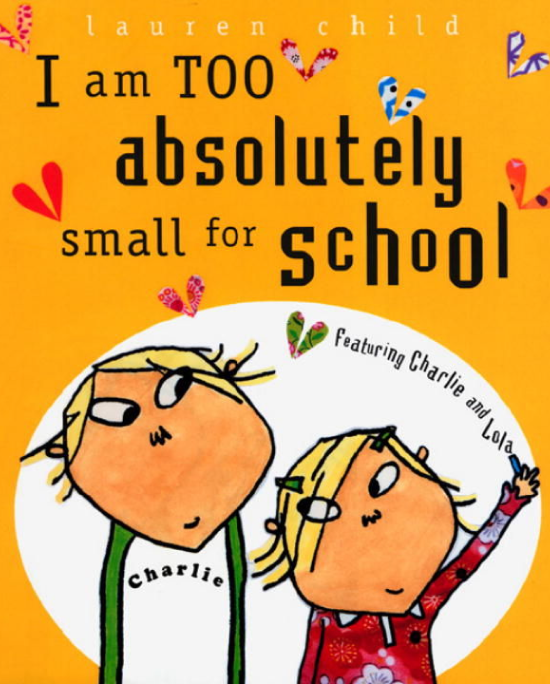
“I Am Too Absolutely Small for School” by Lauren Child
Follow the charming and funny character Lola as she tries to convince her older brother Charlie that she doesn’t need to go to school. This story encourages kids to talk about their worries and addresses their concerns in a lighthearted way.
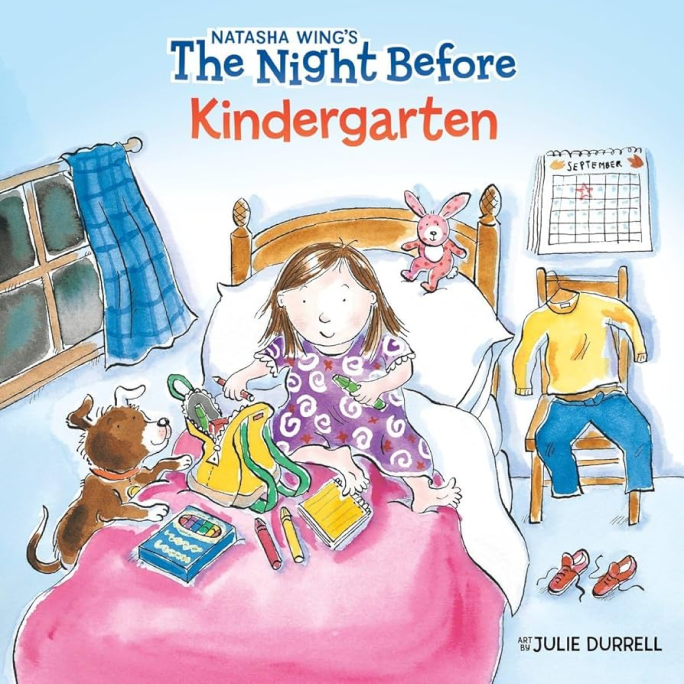
“The Night Before Kindergarten” by Natasha Wing
Modelled after the famous poem, this book builds excitement for the night before school starts. It captures the preparations and emotions many kids feel before their first big day, making it a great conversation starter.
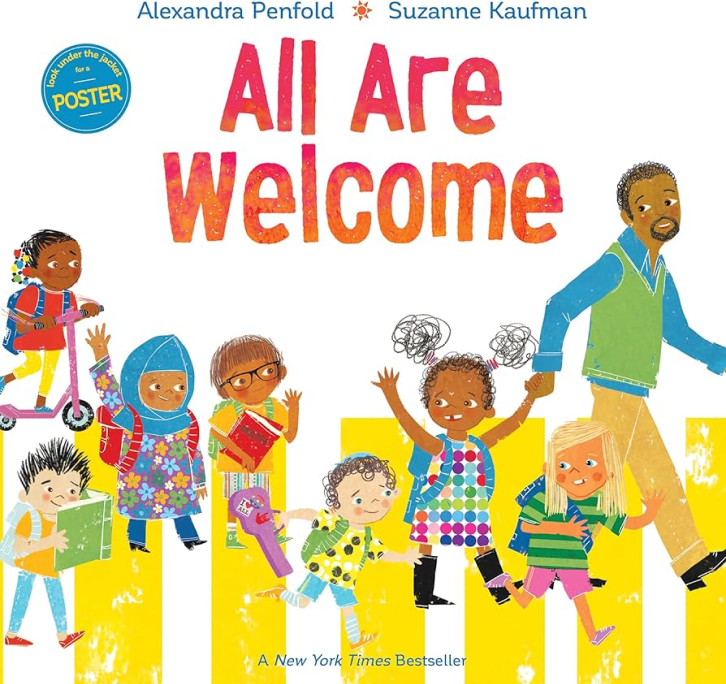
“All Are Welcome” by Alexandra Penfold
A beautiful and inclusive book that celebrates diversity in school environments. It’s perfect for reassuring kids that they will be accepted and valued in their new surroundings, no matter what. In addition to reading these books, here are a few extra tips to help your child prepare for their new adventure:
- Talk about the transition regularly: Discuss what they can expect at big school, including fun activities, new friends, and exciting things they’ll learn.
- Visit the school beforehand: If possible, arrange a visit to help your child get familiar with the new setting and meet the teachers.
- Establish a routine: Begin practicing the school routine a few weeks in advance to help your child adjust to the new schedule.
- Encourage independence: Foster self-confidence by allowing your child to do small tasks on their own, such as packing their bag or putting on their uniform.
Starting big school is a big deal for your little one! By reading these recommended books and following a few simple tips, you can help them feel more prepared, confident, and ready to embrace this new chapter with excitement.
So cuddle up with a good book, talk through the changes, and get ready for an exciting journey ahead!
From,
EduKare
1. Emotional Maturity
Starting school can be a big emotional leap for young children. To assess emotional readiness, ask yourself:
- Can your child separate from you without becoming too distressed?
- Are they able to handle frustration and manage their emotions with minimal help?
- Can they follow basic rules and routines?
While it’s normal for children to feel some anxiety on their first few days of school, their ability to regulate emotions and adapt will help them settle into a classroom setting faster.
2. Social Skills
Social interaction plays a key role in school readiness. Here are a few indicators of healthy social development:
- Does your child interact positively with other children? Sharing, taking turns, and playing cooperatively are important social skills.
- Can they express their needs and wants clearly to adults and peers?
- Are they beginning to show empathy and an understanding of others’ feelings?
These social skills are essential for building friendships and working collaboratively in the classroom.
3. Communication Skills
A child’s ability to communicate effectively will make their school experience smoother and more enjoyable. Here’s what to look for:
- Can your child follow simple directions and listen attentively during conversations?
- Do they ask questions when they don’t understand something?
- Are they able to express themselves using words, rather than relying on gestures?
Good communication skills are foundational for learning and interacting in a classroom setting which is why at eduKare we encourage group learning and activities.
4. Independence
School involves a certain level of independence, and there are a few self-care tasks children should ideally be able to manage before starting:
- Can your child use the toilet independently and wash their hands?
- Are they able to dress themselves, including putting on shoes or a coat?
- Do they understand how to open and eat from their lunchbox?
While teachers and school staff are there to help, children who can manage these tasks on their own feel more confident in a school setting.
5. Physical Development
Motor skills, both fine and gross, are essential for school readiness. Here are some milestones to assess:
- Can your child hold a pencil, crayon, or scissors correctly and use them with some control?
- Are they physically active, able to run, jump, and play safely with other children?
- Do they have the stamina to participate in a full day of school activities?
Developmentally appropriate physical skills allow children to engage more fully in classroom tasks and playtime.
6. Cognitive Skills
While formal academic learning will take place in school, there are some cognitive milestones that indicate your child is ready for structured learning:
- Can they recognise some letters, numbers, shapes, and colours?
- Are they curious about the world around them, asking questions and seeking to learn more?
- Do they understand concepts of time, like “today,” “tomorrow,” and “yesterday”?
Children who show interest in learning and exploring new ideas will be well-prepared for school life.
7. Curiosity and Love for Learning
One of the most important signs of school readiness is whether your child shows an eagerness to learn:
- Do they enjoy storytime?
- Are they interested in learning new things, asking questions, and participating in activities?
A child who is curious about the world around them will have a smoother transition into the structured learning environment of a school.
What If They’re Not Ready?
If your child isn’t quite hitting these milestones, don’t worry! Every child develops at their own pace, and it’s important not to rush them. You can work on building these skills at home through play-based learning, reading together, and encouraging social interactions with other children.
At eduKare we focus on these critical skills to help your little one’s easily transition into formal schooling. If you have any concerns about your child’s readiness, please reach out to our friendly eduKare team and we will offer valuable insight and support to assist your child in reaching this significant milestone! School readiness is an integral part of eduKare’s early education program as we recognise the importance of communication and language (including early literacy and numeracy) and social and emotional development.
Final Thoughts
Starting school is a significant milestone in both your child’s life and yours. By considering your child’s emotional, social, and cognitive development, you’ll be better equipped to assess whether they’re ready for this new adventure. Remember, readiness is about more than academics, it’s about helping your child feel confident and prepared to embrace all the learning and fun that school offers.
Ultimately, trust your instincts as a parent. You know your child best, and with the right preparation and support, they’ll be on the path to success in no time.
From,
EduKare
When older siblings are off school and diving headfirst into holiday fun, it can be challenging for our littlest ones to feel like they’re part of the action. But don’t worry, I’ve got you covered with some fantastic tips and activities to keep everyone feel happy and engaged.
Fun and Easy At-Home Activities for All Ages
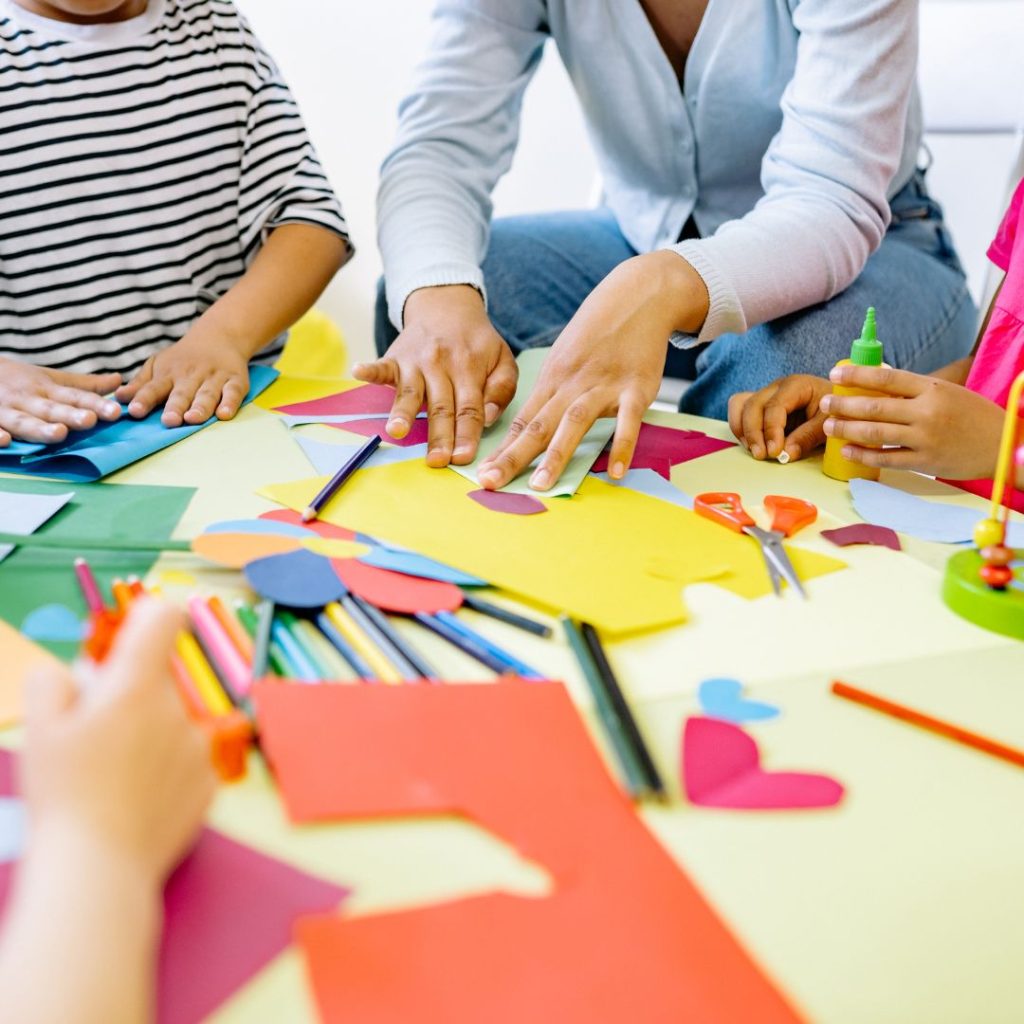
- Creative Craft Sessions
For Preschoolers: Simple and colourful crafts like finger painting, play-dough sculptures, and paper plate animals are always a hit. These activities are not only fun but also great for developing fine motor skills.
For Older Children: More complex projects such as making slime, constructing models from recycled materials, or creating their own comic books can keep them engaged for hours. - Backyard Adventures
For Preschoolers: Organise a mini scavenger hunt with pictures or simple items like leaves, rocks, and flowers. Set up a water play station with buckets, sponges, and toy boats for endless fun.
For Older Children: Create an obstacle course using household items, or set up a treasure hunt with clues and small rewards to challenge their problem-solving skills. - Cooking and Baking Together
For Preschoolers: Let them help with simple tasks like stirring, pouring, or decorating cookies with sprinkles. They’ll love being part of the kitchen action!
For Older Children: Encourage them to take on more responsibility by following a simple recipe, measuring ingredients, and learning basic cooking techniques.
We love pancakes and blueberry muffin recipes. Try yours today! - Storytime Extravaganza
For Preschoolers: Choose books with bright pictures and engaging stories. You can also use puppets or stuffed animals to act out the stories.
For Older Children: Encourage them to read to their younger siblings or even create their own stories. This not only fosters a love of reading but also strengthens sibling bonds.
Our favourite books of all time are: Where the wild things are & The Very Hungry Caterpillar
Creating a Fun Drop-Off Experience
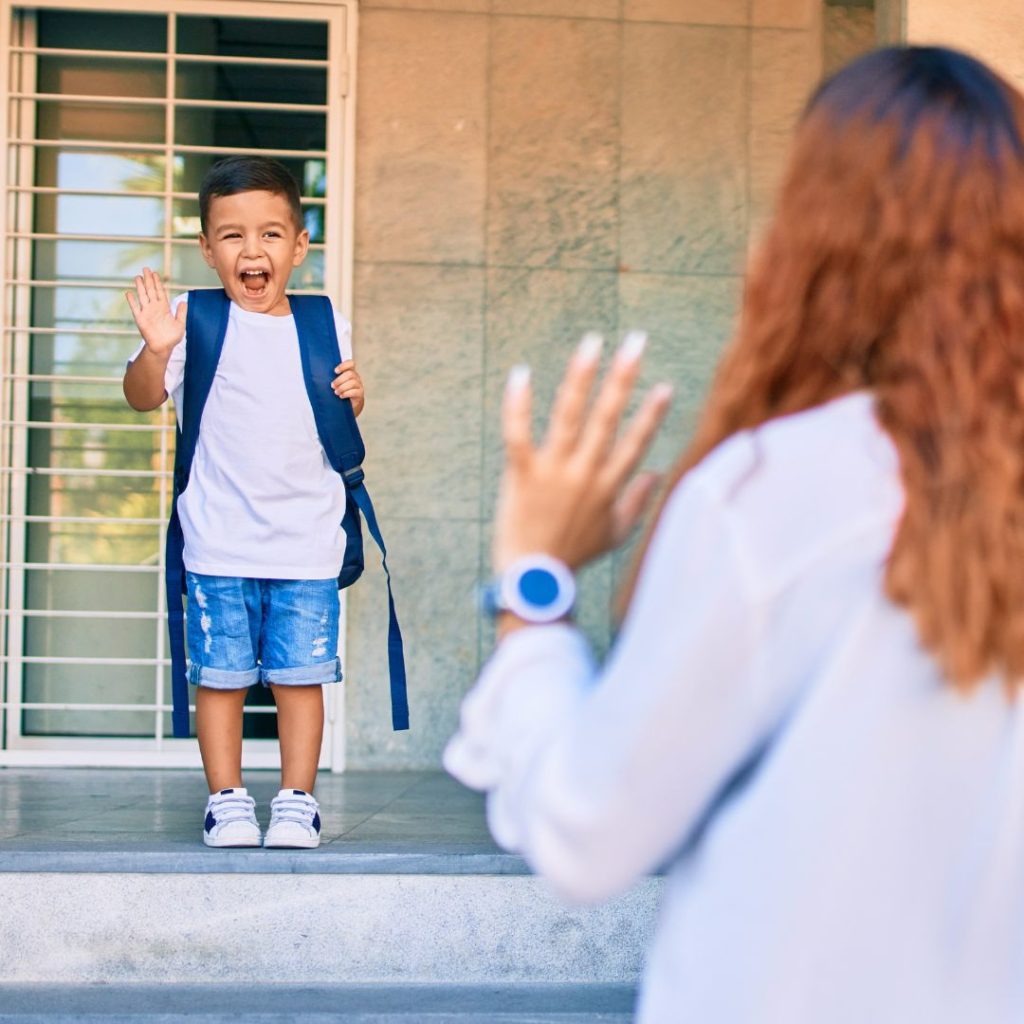
I understand that drop-offs can be particularly tough during school holidays when routines are disrupted. Here are my secrets to making drop-off a smooth and enjoyable experience:
- Special Goodbye Rituals
Establish a unique goodbye ritual that’s just for you and your child. Whether it’s a secret handshake, a special hug, or a silly song, this can make parting ways feel more special and less stressful. - Bring a Comfort Item
Allow your child to bring a small comfort item from home, like a favourite stuffed animal or a family photo. This can provide a sense of security and familiarity during the day. - Highlight the Day’s Exciting Activities
Share with your child the fun activities planned for the day. Knowing they have exciting things to look forward to can make saying goodbye easier. - Stay Positive and Reassuring
Keep your tone positive and reassuring at drop-off. Let your child know that you’ll be back soon and that they’re going to have a great time with their friends and teachers.
Remember, the key is to keep things fun, inclusive, and engaging for all ages. With these tips, I’m confident that your preschoolers will feel just as much a part of the holiday fun as their older siblings. If you have any questions or need more ideas, don’t hesitate to reach out to one of our many educators looking to assist in every way. Happy playing!
Warm regards,
Norma
Here’s how eduKare can assist you in maximizing savings on childcare:
Understanding Child Care Subsidy (CCS) and Out-of-Pocket Expenses: We assist families in navigating childcare expenses by providing tools like the eduKare Child Care Subsidy (CCS) Estimator. Our Centre Directors can help you understand the impact of CCS changes on your family’s situation, ensuring you receive the maximum value from your childcare subsidy.
Optimizing Session Lengths for Maximum CCS Savings: We can help you evaluate whether adjusting your child’s session lengths will optimize your Child Care Subsidy savings. By tailoring session lengths to fit your family’s needs, you can avoid paying for unused hours and achieve significant cost savings.
Transparent Fee Structure: We synchronize our fee reviews with government policy changes, ensuring families experience minimal pricing updates. Our fees support competitive wages for educators and cover essential running costs like rent and supplies, ensuring quality early learning for your child.
Engaging Educators and Teachers: eduKare is dedicated to being the preferred employer for educators and teachers, offering above-award wages and investing in inclusion and learning support. This commitment to our team translates into high-quality care and education for your child.
Utilizing the Improved Child Care Subsidy Rates: With the Australian government’s increased Child Care Subsidy (CCS) rates, more families gain access to affordable early learning. Our Child Care Subsidy Estimator helps you estimate potential savings under the new policy, empowering you to make informed decisions.
Personalized Support from Our Family Services Team: Our dedicated Family Services Team is available to answer any questions about fees, subsidy rates, and session lengths. They can assist you in optimizing your CCS benefits based on your family’s needs and lifestyle commitments.
Choosing the Right Session Length: We offer flexible session lengths tailored to suit different family schedules, allowing you to pay only for the hours you need. Longer sessions may also qualify for discounts, providing additional savings for working parents.
How to Get Started: Contact our eduKare Team on +61 02 6541 3224 to discuss your family’s childcare requirements and learn how we can help you maximise your Child Care Subsidy savings. Alternatively, book a tour at your local eduKare centre to meet our passionate educators and explore our programs firsthand.
At eduKare, we’re committed to supporting Australian families by making quality early learning accessible and affordable. Let us partner with you to create a nurturing environment where your child can thrive while helping you save on childcare costs.
Reach out to us today and discover the eduKare difference!
What Makes eduKare Unique?
Passion for Early Childhood Education: Unlike many corporate childcare groups, eduKare is driven by a genuine passion for early childhood education and development. Our team comprises professionals, entrepreneurs, and parents who understand the importance of providing nurturing environments for young children.
Community-Oriented Approach: At eduKare, we prioritize community involvement and engagement. We believe in building strong relationships with local communities and collaborating with landlords who share our commitment to supporting families and children.
Personalized and Innovative Model: eduKare stands out for its personalized and innovative approach to childcare. We tailor our programs to meet the unique needs of each child, focusing on holistic development through play-based learning and meaningful experiences.
Recipe for Success: Why Partner with eduKare?
- Shared Values and Vision: Partnering with eduKare means aligning with a childcare provider that shares your values and vision for enriching communities and supporting families.
- Strong Community Impact: By partnering with eduKare, landlords can contribute to creating a positive impact on the local community, attracting families seeking quality childcare services.
- Stable and Reliable Tenant: Choosing eduKare as a tenant offers stability and reliability. With our commitment to excellence and our growing reputation, we provide a trustworthy partnership.
- Collaborative Relationship: We believe in fostering collaborative relationships with landlords, working together to create inviting and functional childcare spaces that benefit both parties.
How to Partner with eduKare:
- Reach Out: Contact our team to express your interest in partnering with eduKare as a landlord.
- Discuss Opportunities: We’ll discuss potential opportunities for collaboration, considering location, space requirements, and mutual goals.
- Customized Solutions: We’ll work together to create a customized childcare space that aligns with our model and meets your property’s needs.
- Long-Term Partnership: Establish a long-term partnership focused on mutual success, community impact, and the well-being of children
Partnering with eduKare presents a unique opportunity for landlords seeking to collaborate with a passionate and community-oriented childcare operator. Together, we can create nurturing environments that support early childhood development and make a positive difference in the lives of families. Contact us today to explore how we can work together to bring eduKare’s special model to your property and community.
